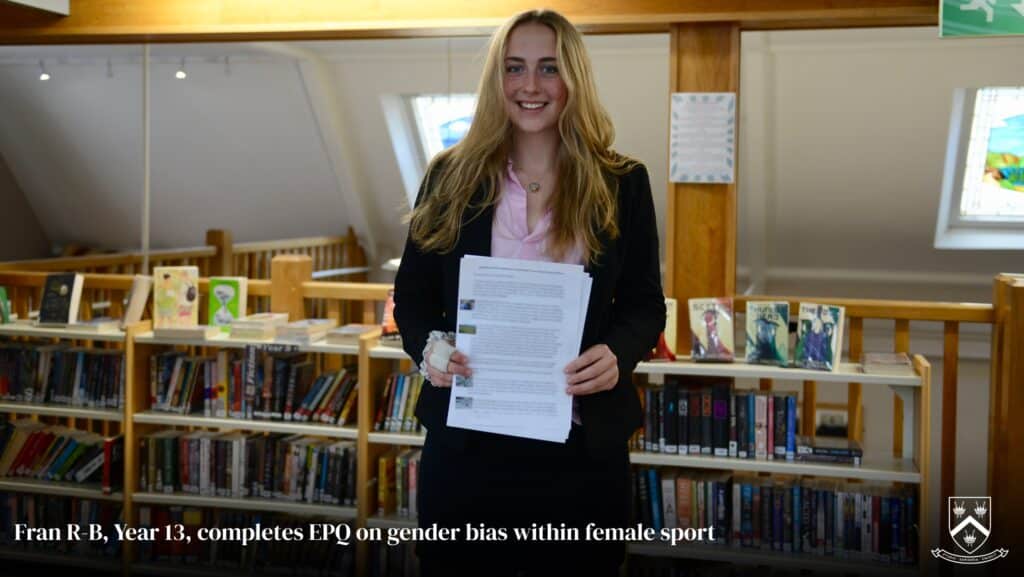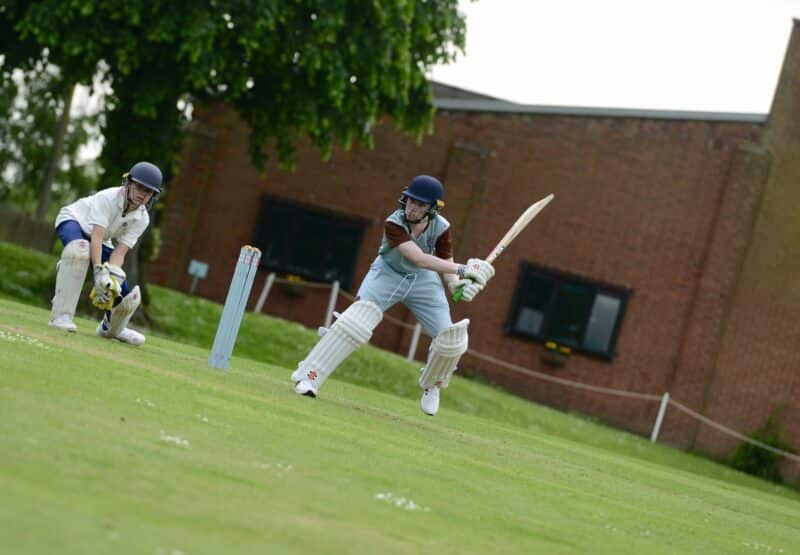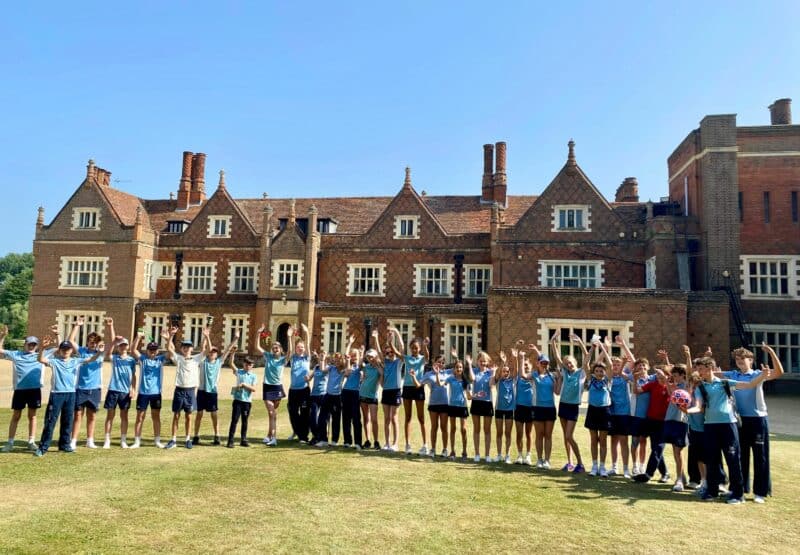Research by a Framlingham College Sixth Former has helped to raise awareness of the level of discrimination across female sport – from biased media coverage to the gender pay gap.
As part of the EPQ (which stands for Extended Project Qualification), A-Level pupil, Fran R-B chose to tackle the often-silenced topic of sexism, racism, and gender bias in female sport head-on.

Framlingham College Sixth Former Fran with her EPQ project
Equivalent to half an A-level and extra UCAS points, the EPQ offers pupils an extra project opportunity alongside their A Levels. Pupils are free to choose whatever topic they feel passionate about and select either an essay of around 10,000 words or an artefact.
Fran’s EPQ focus, ‘The Impact of Sexism and Racism in Female Sport’, also included an extensive case study on the life of tennis hero Serena Williams.
“This is still a very taboo topic, with many girls still experiencing sexism, racism and gender bias from the very start of learning a sport all the way through to top level competing in today’s world”, says Fran.
“Many don’t realise what athletes go through and the magnitude of prejudice they experience – for someone like Serena who grew up in poor areas of Compton to then achieve what she has now is extraordinary.”
As a passionate PE pupil and talented hockey player at the College, Fran sighted many video sources for her research, including the 2022 Amazon Prime rugby documentary ‘No Women No Try’, alongside the Oscar Nominated 2021 film ‘King Richard’ which follows the childhood of Serena Williams.

Fran was inspired by the life and career of tennis icon, Serena Williams (Image: Getty)
Upon her research, Fran uncovered the extent of the gender pay gap happening within the national cricketing tournament, ‘The Hundred’. Her research found that the wage of the highest paid female cricketer, Tammy Beaumont, was the equivalent of the lowest level paid male cricketer within the same tournament.
Fran also discovered the lack of promotion and media coverage on women’s sport, demonstrating how many sport news outlets focused solely on male teams.
“There was only one article [I found during my newspaper research] which mentioned women’s sport and it was a piece on drug doping – not something that is going to inspire young girls”, explains Fran, calling attention to the negative focus the media often places on women’s sport.
With Fran’s sights set firmly on a future career in Sport and Business Management, she added: “For those looking at submitting an EPQ, make sure you choose a topic that you are passionate about. Don’t shy away from tackling taboo topics – pick something that motivates you and that you’re proud to stand for.”
Click here to read more pupil stories.
EPQs explained:
An EPQ is an Extended Project Qualification. EPQs are equivalent to 50% of an A-Level and is part of the National Qualifications Framework (NQF). EPQ grades are marked from A*-E and is entirely graded on coursework, with no examinations.
An EPQ is a short essay, of anywhere between 1,000 and 5,000 words. Your essay can be about anything at all and is then followed by a 10-15 minute presentation to your peers on the subject you’re talking about.







